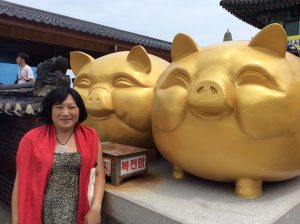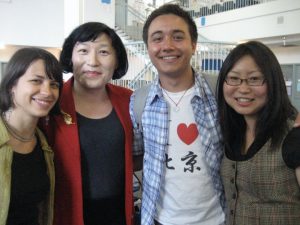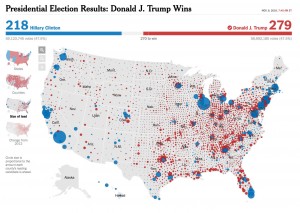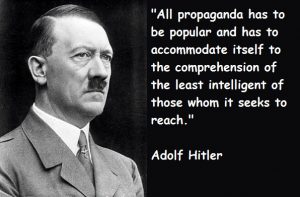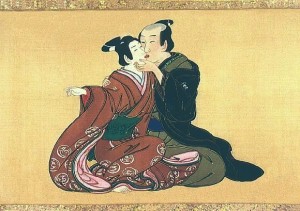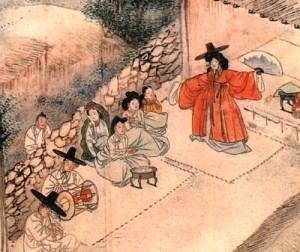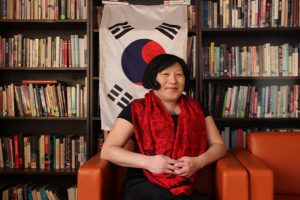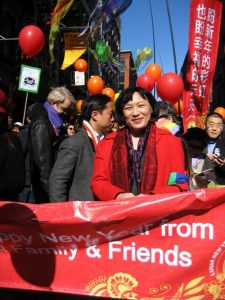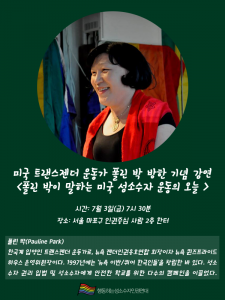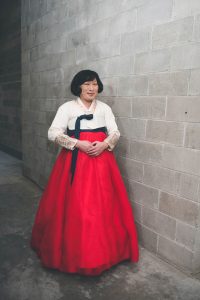The Peril & Promise of the Present & the Shadow of the Past
Pauline Park
Chair,
New York Association for Gender Rights Advocacy (NYAGRA)
Bloom: the Queer & Asian Conference
University of California at Berkeley (UIUC)
24 April 2025
I would like to thank Megan and the organizing committee for inviting me to speak here and I am honored and delighted to have the opportunity to address you today — especially so because it is my second QACON keynote — the first being Launch in 2010 when I spoke about “Articulating Identity, Organizing Community: Re-Launching the Queer API Movement in the United States” (5.1.10).
I return to UC Berkeley and to QACON at a moment of great promise and great peril. The promise is one of a more just society as the lesbian, gay, bisexual, transgender (LGBT) movement moves forward in this country and abroad; the peril is the unprecedented wave of attacks on the transgender community, on migrants and on academic freedom from the highest levels of the federal government as the administration of Donald Trump pursues an agenda that endangers the foundations of democracy itself.
The Trump administration has taken a meat cleaver to the federal government as the richest man on earth leads the absurdly named DOGE — the Department of Government Efficiency — illegally terminates tens of thousands of federal workers not to enhance government efficiency but rather to undermine the ability of the federal government to act on behalf of the most disadvantaged in our society.
Trump’s attack on ‘DEI’ — diversity, equity and inclusion — has resulted in the removal from the Stonewall National Monument of references to transgender community members who participated in the Stonewall Riots and even elimination of references to Harriet Tubman in the Underground Railroad in order to erase her role in the liberation of enslaved African Americans; the administration reversed itself on Harriet Tubman after an outcry but the transgendered participants in the Stonewall Riots remain erased from federal government websites maintained to promote national monuments and national parks.
Let me begin by addressing a concern that is widespread in the transgender community: I have heard more times than I can count and seen posts on social media platforms people declaring, “my identity was just erased.” I understand the panic and despair but I would simply say that neither Donald Trump nor anyone else has the power to erase your identity so do not give him that power. I would also point out that federal, state and local government recognition of transgender identity in the United States is a relatively recent phenomenon: Barack Obama banned gender identity-based discrimination in the federal workforce in 2010 — the same year as QACON’s launch conference — and federal agencies such as the Veterans Health Administration, the Department of Health & Human Services (HHS), the Social Security Administration (SSA), the Department of Education, the Labor Department and the Occupational Safety & Health Administration (OSHA) followed suit with various rules, regulations and rulings over the course of the Obama years.
Since returning to office in January, Donald Trump has signed a wave of executive orders including one rescinding Obama’s executive order permitting openly transgendered people to serve in the US military; but note that Trump cannot rescind federal or state laws and of course the Equality Act has not passed Congress and has no prospect of doing so anytime in the near future.
The Movement Equality Project (MAP) notes that 16 states and the District of Columbia have enacted transgender rights laws protecting estimated 42% of trans people in the United States; MAP also estimates that 37% of trans people in the US live in the 22 states and three US territories that have enacted transphobic laws and implemented policies and it is trans and non-binary people and especially youth in these states who are at the greatest risk. MAP also notes that 395 cities and counties fully and explicitly prohibit discrimination against all LGBT people.
Trump has also launched a wave of deportations of immigrants even of migrants with legal status Andry José Hernandez Romero— most notoriously having ICE abduct Mahmoud Khalil and take the Columbia University graduate student from New York to Louisiana despite his having a green card and unquestionably legal status as a permanent US resident; and that is not to mention the deportation of Kilmar Abrego Garcia despite the administration providing no evidence whatsoever that he was a member of a criminal gang; Trump refuses to bring him back to the US despite the administration admitting that Abrego Garcia’s deportation was a ‘clerical error.’ Trump also deported the openly gay makeup artist Andry José Hernandez Romero to the notorious CECOT prison in El Salvador (Alex Bollinger, “Out Rep. Robert Garcia demands answers about gay makeup artist held in torture camp,” MSN, 23 April 2025) apparently based only on the fact that he had a tattoo.
Trump has also declared war on universities and it is tragic and appalling that Columbia University among others is now collaborating with the administration in terminating academic freedom in order to silence critics of Apartheid Israel and its Gaza genocide — most notoriously, Mahmoud Khalil, who pleaded with Columbia University’s administration to protect him from ICE before his abduction (“ICE Denies Mahmoud Khalil’s Request to Join His Wife for Birth of Their First Child,” Democracy Now, 22 April 2025). It is important to point out that there is an exceptionally powerful Zionist machine that includes the Anti-Defamation League (ADL) that is pushing a false definition of anti-Semitism as a pretext for undermining academic freedom across the country.
Freedom of speech is at threat as are freedom of assembly, freedom of the press and even due process itself. In short, we are at a moment of great peril and it is not at all inapt to think about the Weimar Republic in 1932 when considering the parlous state of democracy in the United States today.
And of course, it is not only Trump and the Republicans we have to worry about: we have to consider the Democrats’ mixed record on immigration; in fact, Barack Obama and Joe Biden deported far more migrants in his one term than Donald Trump did in his first term. Barack Obama deported 1.57 million migrants in his first term and 1.49 million in his second term — more than any president in US history (Alicia Hagopian, “Trump is promising a deportation surge. How many people did Obama, Biden and Trump actually deport?,” the Independent, 19 November 2024). Trump deported 1.2 million migrants in his first term while a further 805,770 were self-deported or turned away at the border between fiscal years 2017 and 2020, according to the Independent of London. Biden deported 4.7 million migrants, but with the caveat that much of the spike was attributable to the Title 42 order during the COVID-19 pandemic. How many of these migrants were LGBTQ is not known, but one has to assume at least some were.
The one area in which there is a clear difference between Democrats and Republicans is that of social values issues such as LGBT rights and reproductive rights; but even here, there is considerable backsliding going on with regard to transgender rights. California Gov. Gavin Newsome seems to have decided that Clintonesque triangulation will better position him for a presidential run: how else to explain his joining the transphobes in declaring that the participation of trans women and girls in in women’s and girls’ sports is “unfair” (Bill Barrow, “California’s Gavin Newsom opposes trans athletes in women’s sports, splitting with progressives,” Associated Press, 6 March 2025).
Given the daunting challenges facing us, I would like to address the current situation first by talking about identity and erasure and then considering strategies for resistance and practical concerns for students considering the near-term and long-term future. I would like to begin by talking about history. In common parlance, Americans will say “that’s history” or “he’s history” to mean that something or someone is not only finished but now totally irrelevant. William Faulkner once said, “History is not was, it is.” And perhaps more eloquently, in “Requiem for a Nun,” the winner of the Nobel Prize for Literature wrote, “The past is never dead. It’s not even past. All of us labor in webs spun long before we were born, webs of heredity and environment, of desire and consequence, of history and eternity.”
The past is never dead. It’s not even past. All of us labor in webs spun long before we were born, webs of heredity and environment, of desire and consequence, of history and eternity.
I think we could profitably spend a few minutes talking about those “webs spun long before we were born, webs of heredity and environment, of desire and consequence, of history and eternity.” And I would like to particularly talk about the pre-modern history of Asia and the Pacific as one set of webs that is especially relevant to us as queer APIs. We who stand and live at the intersection of multiple communities and identities must insist on our rightful place in all of them and to do so effectively, we must understand how firmly we are rooted in our countries, cultures and communities of origin.
The year after I spoke here at “Launch,” I gave a presentation at Creating Change in Minneapolis on queer API identity under the rubric “Proto-Transgenderal & Homoerotic Traditions in Asian & the Pacific” — which sounds more like the title of a dissertation than a 20-minute presentation. I won’t repeat that presentation here but if you want to read it — which will take you 10 minutes at most — you can simply go to my website and search for ‘proto-transgenderal.’ First, about that term: I invented it because applying the term ‘trans’ to people in the pre-modern era would be to impose an identity formation on our queer ancestors that they would not have used and might not have fully understood; I thought it would be better to use the term ‘proto-‘ — meaning anticipating — because while they were quite different in important respects, the identity formations that our queer API ancestors would have self-identified through do anticipate contemporary trans and queer identity formations in important ways.
And while there is considerable variation in such identity formations from East Asia to South Asia to Southeast Asia to the Pacific Islands, there are a few generalizations we can make. First, there were what we today would call ‘transfeminine’ forms of gender identity in every pre-modern Asian and Pacific Islander society; and there is evidence of various ‘transmasculine’ forms of gender identity in many of them. Second, these identity formations related to either theater or religion and spirituality. Third, many elements of these pre-modern identity formations persist into the present day. For theater, consider Beijing opera, kabuki theater and the Korean touring theatrical troupes known as namsadang that toured villages throughout Korea until the early 20th century, the teenage boys played women’s roles — just as Elizabethan theater in England — and were said very often to be lovers of adult men in the same companies. In terms of religious and spiritual traditions, consider the mudang — the shamanic figure in the original Altaic culture which Koreans brought down into the Korean peninsula with them from eastern Siberia.
This pre-Sinitic mudang culture pre-dates the introduction of Confucianism, Taoism and Buddhism into the peninsula. In the mudang culture, the shaman is always a woman, but not necessarily female: a significant number of mudang were male — paksu mudang — and evidence suggests that they may have lived as women as well as performing the sacred rites and rituals of the mudang. And the Hijra of India, the Dao Mao of Vietnam and the Bissu of Sulawesi. And there is that most gender-transgressive of Taoist deities, Guanyin, who is said by some to have changed from man to woman and who has become an iconic image for the gender-variant throughout East Asia.
In examining the entire history of homoerotic and proto-transgenderal traditions in pre-modern Asian and Pacific Islander societies, we must not make the mistake of romanticizing such traditions or failing to recognize the significant differences between ‘them’ and ‘us’ — meaning contemporary queer LGBT/queer APIs, especially those of us in the diaspora. Those ancient traditions are embedded in societies which were not characterized by equality of age, gender or class relations, and many of the forms that homoeroticism and transgenderal identity took would offend our egalitarian sensibilities.
The important point is that we as LGBT/queer APIs must known the history of our predecessors in order to counter the narrative of LGBT and queer as foreign, white, Western, and even specifically North American; this is crucial because the discourse which the religious right successfully articulated in communities of color — including in API communities — is one which makes us foreign to our own cultures and communities of origin. The binary opposition of LGBT people as secular atheists opposed to the God-fearing conservative Catholic Filipinos, fundamentalist Protestant Koreans, and ultra-traditional Hindu South Asians who are a significant part of the Asian diaspora in the United States is a false dichotomy, reinforced by the mainstream media who pit an invariably white queer activist calling for a complete separation of church and state against a minister or priest or lay person — often a person of color — in a false ‘debate’ over LGBT rights and especially transgender rights. And that brings us back to the point about ‘erasure.’ And crucially Christian fundamentalists —Asian as well as white, LatinX and African American — are a core part of Donald Trump’s base and one of the driving forces behind the Heritage Foundation’s Project 2025. Only in re-articulating our position in this long pre-modern queer history can we reinsert ourselves in the governing narratives of our countries, cultures and communities of origin.
And so we challenge homophobia, biphobia and transphobia both within API communities and beyond by noting that ‘queer’ is in fact traditional in Asian and Pacific Islander cultures in a very meaningful sense. The slogan of Queer Nation was “We’re here, we’re queer, get used to it.” China alone has homoerotic and proto-transgenderal traditions going back centuries. The ‘passion of the cut sleeve‘ (duan xiu) — the love of the Han dynasty Emperor Ai (27 BC-1 AD) — for his male favorite, Dong Xian — is the source of the Chinese euphemism for homosexuality (namely, ‘cut sleeve’). The other popular Chinese euphemism for homosexuality — the ‘half-eaten peach‘ — goes back even further, to the Zhou dynasty Duke Ling of Wei (534-403 BC) and his male lover, Mixi Zia. So when it comes to homosexuality, bisexuality and transgender, the truth is that we have been here — in every Asian or Pacific Island society — since time immemorial; so as I like to say, we have been here, we have been queer — some of our heteronormative community members just forgot!
I would like to close with a few thoughts on strategy and tactics as we enter an era of unprecedented authoritarianism in this country as well as many of our countries of origin. Here are a few suggestions.
First, be well informed; use history as I have suggested; challenge fundamental assumptions, especially the ‘viral model’ of identity formation: the absurd notion that some APIs have that we’re queer just because we’ve been hanging around white people too much.
Second, be bold and unapologetic when it is possible to be so; but be careful, cautious and prudent when it merits. So if you lack citizenship or crucial documents, make sure to have contacts and contact information lined up for lawyers and others who can respond immediately should there be an ICE raid or some other such government intervention. And known when to pick your battles and which to pick.
I’ve been involved in Palestine solidarity work since March 2011 and I do not regret it in the least, nor would I ever discourage anyone from engaging in such activism; but I would also caution those who want to to recognize that there are risks and costs and to weigh them carefully. The suppression of freedom of speech and expression in this country and especially on college campuses today is comparable to the height of the Red Scare initiated by Joe McCarthy’s Congressional hearings. It is no coincidence that the Republican senator from Wisconsin’s legal counsel was Roy Cohn — the self-hating closet queen who became a mentor to Donald Trump and from whom the orange fascist learned most of the strategies and tactics he has employed in his disgraceful political career — with disastrous results for the country as a whole and for migrants and trans people in particular.
Third and finally: if you want to do social justice work, consider spending a few years in the corporate world first; I never aimed to be an activist; in fact, I call myself an ‘accidental activist’; my first career was in corporate public relations, and though I found no fulfillment in helping large corporations enhance their public images, I learned things while doing so that I use to this very day in my activism. The very practical benefit of working in the corporate world is that one can pay off student loans and establish oneself financially. But equally important is the knowledge that one gains about how the world really works. Spending a few years in the bowels of corporate America was a revelation for me and ultimately made me a better and more effective activist; those insights might be classified under the rubric ‘know the enemy.’ For example, if you wanted to do environmental law, you could spend a few years working for a big polluter or a law firm that represented polluters; you would come out better prepared to fight them as an activist or environmental lawyer.
For those who see the pursuit of social justice as their life’s work, the most basic question is whether you want to be paid to do it or not; paid staff positions in advocacy are few and far between and one makes compromises to get and keep them just as one would make compromises if one decided that the only practical route would be to get a ‘day job’ to pay the bills and do activism in one’s spare time; either way, it’s a very personal decision that one must make for oneself. I myself have found the truth in the Mahatma Gandhi’s dictum that it is through service through others that one finds oneself.
Regardless what path you choose in life and career, anyone seeking to live an authentic life need look no further than the conclusion from “Walden” for guidance in which Henry David Thoreau writes:
“I learned this, at least, by my experiment: that if one advances confidently in the direction of his dreams, and endeavors to live the life which he has imagined, he will meet with a success unexpected in common hours. He will put some things behind, will pass an invisible boundary; new, universal, and more liberal laws will begin to establish themselves around and within him; or the old laws be expanded, and interpreted in his favor in a more liberal sense, and he will live with the license of a higher order of beings. In proportion as he simplifies his life, the laws of the universe will appear less complex, and solitude will not be solitude, nor poverty poverty, nor weakness weakness. If you have built castles in the air, your work need not be lost; that is where they should be. Now put the foundations under them.”
Thank you.
Pauline Park is chair of the New York Association for Gender Rights Advocacy (NYAGRA), the first statewide transgender advocacy organization in New York, which she co-founded in June 1998, and president of the board of directors of Queens Pride House, the LGBT community center in the borough of Queens, which she co-founded in 1997. Park led the campaign for the transgender rights law enacted by the New York City Council (Int. No. 24, enacted as Local Law 3 of 2002). She served on the working group that helped to draft guidelines — adopted by the Commission on Human Rights in December 2004 — for implementation of the new statute. Park negotiated inclusion of gender identity and expression in the Dignity for All Students Act (DASA), a safe schools bill that became the first fully transgender-inclusive legislation enacted by that body. She also served on the steering committee of the coalition that secured enactment of the Dignity in All Schools Act by the New York City Council in September 2004. In 2005, Park became the first openly transgendered person chosen to be grand marshal of the New York City LGBT Pride March, the country’s oldest and largest pride parade. In 2012, Park participated in the first US LGBTQ delegation tour of Palestine. In 2015, she keynoted the Queer Korea Festival preceding the Seoul Pride Parade which together constituted the largest event in the history of the LGBT community in Korea up until that time, estimated to have drawn more than 35,000 people. She has written widely on LGBT issues and has conducted transgender sensitivity training sessions for a wide range of social service providers and community-based organizations. She did her B.A. in philosophy at the University of Wisconsin-Madison, her M.Sc. in European studies at the London School of Economics and her Ph.D. in political science at the University of Illinois at Urbana. Park has written widely on LGBT issues and has conducted transgender sensitivity training sessions for a wide range of organizations. She was the subject of “Envisioning Justice: The Journey of a Transgendered Woman,” a 32-minute documentary by Larry Tung that premiered in 2008.
